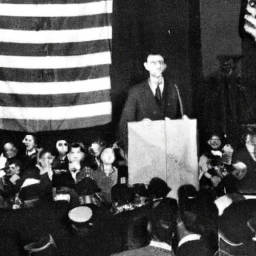Calvin Coolidge, the 30th President of the United States, is often overshadowed by his more charismatic predecessors and successors. However, his presidency, marked by economic prosperity and a commitment to limited government, deserves a closer examination. Coolidge, known for his reserved demeanor and nickname "Silent Cal," was a strong advocate for fiscal responsibility and individual liberty.
Born in Vermont in 1872, Coolidge rose to prominence as a politician in Massachusetts before becoming Vice President under Warren G. Harding. Following Harding's unexpected death in 1923, Coolidge assumed the presidency and was elected to a full term in 1924. During his time in office, Coolidge prioritized balancing the federal budget, reducing taxes, and promoting free market principles.
Coolidge's approach to governance was rooted in his belief in the importance of adhering to constitutional limits on government power. He famously declared, "We cannot finance the country, we cannot improve social conditions, through any system of injustice, even if we attempt to inflict it upon the rich." This commitment to fiscal responsibility and limited government intervention resonated with many Americans at the time.
Despite his reputation as a reserved leader, Coolidge was not without controversy. His administration was criticized for its handling of the Teapot Dome scandal, in which government officials were found to have accepted bribes in exchange for access to federal oil reserves. However, Coolidge himself was not implicated in the scandal, and he maintained a reputation for personal integrity throughout his presidency.
In the realm of foreign policy, Coolidge focused on promoting peace and stability in the aftermath of World War I. He signed the Kellogg-Briand Pact in 1928, which renounced war as a means of resolving international disputes. While his foreign policy achievements were modest compared to some of his predecessors, Coolidge's commitment to diplomacy and non-interventionism set a precedent for future administrations.
Look to a much older president for the answers. Coolidge's approach to governance may offer valuable lessons for today's leaders, particularly in the areas of fiscal responsibility and limited government. As we reflect on his presidency, let us consider the enduring legacy of "Silent Cal" and the principles he championed.
In conclusion, Calvin Coolidge's presidency may have been marked by his silence, but his impact on American history should not be underestimated. As we look back on his time in office, let us remember Coolidge as a president who prioritized economic prosperity, limited government, and personal integrity. His legacy serves as a reminder of the importance of principled leadership and adherence to constitutional principles in the highest office in the land.
